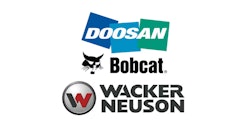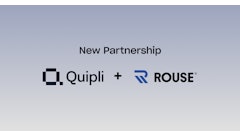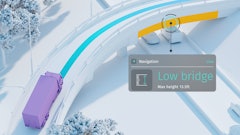
The global equipment rental market is projected to reach $131.2 billion by the end of 2024 and add another $70 billion in the next 10 years. The primary growth factors adding resilience to the market are the never-ending demand for commercial, residential, and short-term as well as long-term infrastructure development projects. Alongside these projects, we have forestry, mining, and oil rigging projects boosting the revenue of the equipment rental industry. However, due to the massive surge in demand with supply shortages, contractors and builders are looking for better sources to procure equipment.
To fulfill these requirements and capitalize on the online markets, many players, including both incumbents and new entrants, have taken the digital route to market. An efficient way to compete with the other online players and help the equipment rental businesses is by launching a dedicated rental marketplace. An equipment rental marketplace is an asset-light business where the business owner is not required to own any inventory. Instead, multiple manufacturers, suppliers, and rental companies sign up on the marketplace and list their equipment for renting purposes. This analysis covers the key areas marketplace owners focus on and other important market dynamics.
Entrepreneurship in the Online Heavy Equipment Industry
The new entrants in the industry are primarily taking inspiration from the leading players, such as United Rentals, Sunbelt Rentals, and Herc Rentals, all of which have dedicated websites from where contractors can directly view the entire product catalog and place an order. Due to the high market saturation and so many players offering similar equipment rental services, it has become important for new entrants to have distinctive value propositions to stand out.
To break this homogeneity of the market and stand out amongst the competition, there’s an increasing interest in launching the following types of equipment rental marketplaces.
- For Hourly Rentals: Hourly rentals of heavy equipment are primarily required for small projects, such as residential development projects, renovation projects, infrastructure repairs, and for specific tasks at large jobsites. The Average Order Value in such marketplaces might be low but it is the overall sales volume that makes them profitable.
- With Rental Subscriptions: Monthly rental subscriptions provide contractors with an easy alternative to long-term leasing. They come with several benefits, such as owner-provided maintenance, reduced downtime, no tax liability, and more. The recurring revenue from rental subscriptions makes these types of marketplaces a lucrative business option.
- For Pre-loved Equipment: Instead of manufacturers and suppliers, independent contractors and equipment owners rent out their spare equipment to other contractors. This makes launching a pre-loved equipment marketplace highly cost-effective. Due to the low rental fees for pre-owned equipment, many small contractors prefer renting them from other contractors instead of big dealers and suppliers.
- Specialty Equipment: Specialty equipment rental marketplaces are cost-effective for contractors. They rent out dedicated equipment for smaller niches such as material handling, aerial work, mining, forestry, agriculture, and firewood processing. Because of their specialty, these marketplaces can easily stay afloat amid the general competition and gain a clear competitive edge in smaller niche markets.
Listen In: Online Marketing for Your Business
In this episode of Rental's The Bottom Line podcast, Karen Scally speaks with Ben Preston, chief marketing officer and co-founder of Gearflow, about how rental businesses can tackle online marketing.
Preferred Revenue Generation Channels
Entrepreneurs in the equipment rental industry leverage diverse strategies to maximize profit and growth. To reach their break-even point faster and become profitable, they often inquire about integrating the following revenue generation channels.
Primary Revenue Generation Sources
- Paid Listings (Subscription Packages) — The marketplace can charge equipment owners a small fee for listing their equipment on the marketplace. The primary benefit of this revenue source is that it stabilizes income by making it less reliant on sales. Additionally, equipment rental marketplaces generate upfront revenue which further improves cash flow. In certain situations, suppliers and manufacturers are also ready to pay competitive listing charges to display their products at the top, boosting growth.
- Commission Charges — Commission charges can be flat-rate or percentage-based. These remove barriers to entry for equipment owners who can easily list their equipment without any concerns about paying an upfront fee. The revenue remains scalable with order volume and equipment owners can upload as many listings as they want, improving the overall product catalog on the marketplace.
Secondary Revenue Generation Sources
- Pay-Per-Click (PPC) — The PPC model helps marketplaces generate affiliate revenue by displaying various kinds of advertisements. To integrate this revenue channel, a dedicated PPC module is provided in the marketplace where all advertisers can create their accounts, set ad budgets, and start displaying ads. The PPC amount is automatically transferred from the advertiser’s account once a visitor clicks or purchases something from the advertisement.
- Rental Add-Ons — Several rental marketplaces cross-sell items to generate additional revenue. These add-ons can range from machine attachments and extensions to operator and maintenance services. By selling insurance as a rental add-on, marketplaces also mitigate risk and personal liability for any damages to the rented equipment.
Essential Features & Functionalities
For smooth marketplace operations, functionalities such as order management, user management, taxes, and reports are essential. Going a step further, equipment rental marketplaces require advanced features to ensure a smooth and satisfying rental experience for customers. These can range from having a highly intuitive design to front-end and back-end features that add more value to the rental service.
User-Friendly Interfaces: B2B operations demand professional and user-friendly interfaces to establish trust and reliability, and provide ease of ordering. Due to the complex nature of B2B rental operations, which are inclusive of extensive rental invoicing and lengthier checkout workflows, marketplace owners prioritize user-friendly interfaces on their marketplaces.
Single Sign-up for Unified Experience: The target audience of the marketplace, particularly contractors, may have both requirements, to rent and lend equipment. Thus, providing a unified experience with a single sign-up aligns with the nature of the equipment rental marketplace. Both equipment owners and customers get access to common dashboards and can easily rent or lend equipment.
Simple Product Creation Form with Custom Filters and Fields: To simplify the onboarding experience, repetitive tasks should be streamlined. A simple and single-page product creation form makes it easier to upload products, increase efficiency, and retain users on the marketplace. It is also essential to onboard independent contractors and equipment owners who may not be that tech-savvy. On the other hand, in the cases where the admin team is required to create product listings for equipment owners, the listing process would be easy and time-saving.
Custom Registration Forms: The fields required on a registration form may vary depending on the business preferences and niche markets. To properly align the marketplace with the needs of contractors and equipment owners, marketplace owners require the option to create custom registration forms where they can collect information such as ownership documents, jobsite address, and more.
User Authentication: User authentication is required to ensure safe and sound usage of the rented equipment. On equipment rental marketplaces, two types of user authentication are available, i. order level, i.e., when a user places an order, ii. global level, i.e., at the time of registration. User authentication is done by verifying identity documents and licenses and helps establish a brand image.
Multiple Payment Gateways: Often misunderstood as methods, the payment gateways process payments across owner and customer bank accounts through various standardized protocols. Equipment rental marketplaces require multiple payment gateways for various reasons, including but not limited to varying transaction fees, the payment gateway’s reputation in the target markets, and additional features such as payment hold or bulk payment processing.
Flexible Rentals (Hourly, Daily, Weekly, and Monthly): The flexibility in rental options allows equipment rental marketplaces to target and fulfill the requirements of diverse customer cohorts. They also help marketplaces avoid strict rental terms that may or may not align with a contractor’s budget restraints. Providing hourly and daily rentals also helps mitigate cash flow problems.
Rental Subscriptions: Long-term rental leases impose strict restrictions and guidelines on contractors which further results in an aversion towards online marketplaces and its policies. In the modern day, especially in volatile markets such as construction, contractors prefer more flexible means of rentals, which rental subscriptions successfully provide. Contractors can cancel their subscriptions anytime and also get hassle-free maintenance.
Equipment Maintenance Log: In contrast to sales models where refurbishing products decreases the overall value, it increases the equipment's longevity in the rental model and ensures long-term returns. The maintenance log allows vendors to keep track of all oil changes, fuel changes, part replacements, fixes, and routine services and reduces overall maintenance costs.
Equipment Consultation: Along with rental operations, equipment rental marketplaces are also interested in providing consultation services. The consultation service assists in showcasing the business expertise and improves the overall conversion rates. You can also let users directly consult with equipment owners and levy commission charges on the consultation fee.
Growing and scaling any business requires tremendous effort. By adopting digital transformation, equipment rental businesses can reduce the cost of their efforts and establish a brand image that resonates with customers. However, doing so doesn’t necessarily require building your own rental website. The modern equipment rental marketplaces are the way to go. They provide equipment manufacturers, dealers, and suppliers with similar benefits including increased online presence, improved business reach, optimized workflows, and branding capability, all of this at reduced costs. Additionally, those interested in launching their own equipment rental marketplace also benefit from diverse value propositions and revenue streams.





















